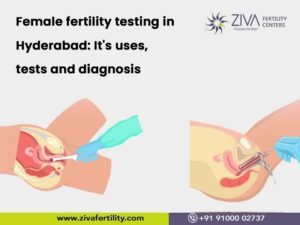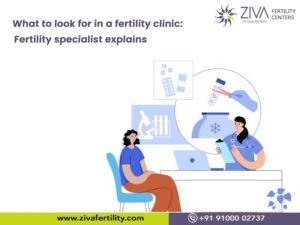Once you and your partner have been diagnosed with fertility issues, it is time to consider your treatment options. Fertility treatment usually refers to drugs that stimulate the production of eggs or sperm or procedures that involve processing eggs, sperm, or embryos. However, infertility treatment is more than just fertility treatment. The treatment of infertility may also include surgery, lifestyle changes, weight loss or treatment of underlying diseases.
Once you and your partner have been diagnosed with fertility issues, it is time to consider your treatment options. Fertility treatment usually refers to drugs that stimulate the production of eggs or sperm or procedures that involve processing eggs, sperm, or embryos. However, infertility treatment is more than just fertility treatment. The treatment of infertility may also include surgery, lifestyle changes, weight loss or treatment of underlying diseases.
Male infertility
Male infertility
Malefactors cause approximately 40% of infertile couples. Malefactors may include low sperm count, abnormal sperm appearance, blocked vas deferens, or poor sperm motility.
Malefactors cause approximately 40% of infertile couples. Malefactors may include low sperm count, abnormal sperm appearance, blocked vas deferens, or poor sperm motility.
Female infertility
Female infertility

Another 40% of infertile couples have problems related to their female partner. These may include irregular or anovulation, blocked fallopian tubes, or abnormal reproductive organs. Unfortunately, no specific cause can be found in the remaining 20% of infertile couples.
Another 40% of infertile couples have problems related to their female partner. These may include irregular or anovulation, blocked fallopian tubes, or abnormal reproductive organs. Unfortunately, no specific cause can be found in the remaining 20% of infertile couples.
Symptoms of infertility
Symptoms of infertility
What is the treatment for male infertility?
What is the treatment for male infertility?
In men, the fertility treatment is as follows:
In men, the fertility treatment is as follows:
- Surgery: The cause is varicocele (dilation of the scrotal vein) or blockage of the vas deferens (the tube that carries sperm).
- Antibiotics: Treat infections of the reproductive organs—medications and consultations to treat erectile or ejaculation problems.
- Hormone treatment: If the problem is low or high levels of certain hormones, hormone therapy is given.
Surgery: The cause is varicocele (dilation of the scrotal vein) or blockage of the vas deferens (the tube that carries sperm).
Antibiotics: Treat infections of the reproductive organs—medications and consultations to treat erectile or ejaculation problems.
Hormone treatment: If the problem is low or high levels of certain hormones, hormone therapy is given.
What are the main treatments for female infertility?
What are the main treatments for female infertility?
Ovulation Monitoring: Wrong timing can prevent pregnancy. Over-the-counter ovulation tests can help you determine the time of ovulation (egg release) and choose the best time for sexual intercourse. The test measures the hormone levels that increase 12 to 36 hours before ovulation. If the test result is not clear or is always negative, please see a doctor. About one-third of cases of infertility are related to irregular ovulation.
Ovulation Monitoring: Wrong timing can prevent pregnancy. Over-the-counter ovulation tests can help you determine the time of ovulation (egg release) and choose the best time for sexual intercourse. The test measures the hormone levels that increase 12 to 36 hours before ovulation. If the test result is not clear or is always negative, please see a doctor. About one-third of cases of infertility are related to irregular ovulation.
Fertility drugs: Drugs can be used to help women who ovulate irregularly. Clomiphene citrate (Clomid or Serophene) is the most common of these drugs. It is relatively effective and inexpensive. About half of women who take it will get pregnant, usually within three cycles. Clomiphene can cause multiple eggs to be released simultaneously, so the risk of multiple pregnancies (pregnancy with two or more fetuses) is increased.
best replica watchclear phone casesvergilbte handyhulle reinigen
Fertility drugs: Drugs can be used to help women who ovulate irregularly. Clomiphene citrate (Clomid or Serophene) is the most common of these drugs. It is relatively effective and inexpensive. About half of women who take it will get pregnant, usually within three cycles. Clomiphene can cause multiple eggs to be released simultaneously, so the risk of multiple pregnancies (pregnancy with two or more fetuses) is increased.
Hormone injectable: After six months of trying clomiphene, women who have not conceived may prescribe an injection of the hormone to stimulate ovulation. There are several hormone preparations to choose from. Like clomiphene, hormone injections increase the chance of multiple pregnancies.
Hormone injectable: After six months of trying clomiphene, women who have not conceived may prescribe an injection of the hormone to stimulate ovulation. There are several hormone preparations to choose from. Like clomiphene, hormone injections increase the chance of multiple pregnancies.
Obstructed Fallopian Tube Surgery: A blocked or scarred fallopian tube can prevent some women from getting pregnant. This may be due to endometriosis (overgrowth of endometrial tissue outside the uterus), previous surgery, or damage caused by a previous pelvic infection. Laparoscopic surgery can remove scar tissue from some women and increase their chances of getting pregnant.
Obstructed Fallopian Tube Surgery: A blocked or scarred fallopian tube can prevent some women from getting pregnant. This may be due to endometriosis (overgrowth of endometrial tissue outside the uterus), previous surgery, or damage caused by a previous pelvic infection. Laparoscopic surgery can remove scar tissue from some women and increase their chances of getting pregnant.
For both male and female ART: Infertility in men and women It can also be assisted by reproductive technology or ART. There are many types of ART:
For both male and female ART: Infertility in men and women It can also be assisted by reproductive technology or ART. There are many types of ART:
Artificial insemination with donor sperm: If your male partner has a few healthy sperm, you can also use donor sperm for artificial insemination. It is usually recommended to consult before choosing because the child has no biological relationship with the father. Donor sperm IUI has been very successful for infertile women, with a cumulative pregnancy rate of over 80%.
IVF and Multiples: When embryos are transferred to the uterus in IVF, 2 to 4 embryos are usually transferred at a time. This increases the likelihood of pregnancy but also increases the possibility of multiple pregnancies. It is essential to discuss this possibility with your fertility specialist because multiple pregnancies increase risks such as preterm birth, high blood pressure, anaemia, miscarriage, and other complications.
Blastocyst transfer in vitro fertilization: Blastocyst transfer is a relatively new technique for in vitro fertilization. Traditionally, IVF embryos are transferred to the uterus at the 2-8 cell stage. In this process, the embryos grow for five days until they reach the later stages of development called the blastocyst stage. Then transfer one or two blastocysts to the uterus. This eliminates the possibility of triplets and maintains a high success rate of in vitro fertilization.
Donor embryos: Donor embryos are embryos donated by a couple who have completed the process of in vitro fertilization. Donor embryo transfer is cheaper than standard IVF or IVF using donor eggs. This app allows the experience of pregnancy. The baby will not have any biological relationship with either parent.
Surrogacy: For women who cannot conceive, surrogacy may be an option. Traditional surrogacy involves inseminating the surrogate mother with sperm from the male partner. Gestational surrogacy is another option, which involves IVF to create embryos from both partners and transfer these embryos to the pregnant woman’s uterus. This option allows babies to be biologically related to male and female partners.
Conclusion:
Conclusion:
Conclusion
In this article, we want to introduce you to the treatments at Ziva infertility Clinic. If you cannot have children, you can try IVF under the supervision of a Ziva infertility Clinic expert. Ziva infertility Clinic has expert doctors in the field of IVF. By trying the IVF pregnancy method in Hyderabad, you and your spouse will have another chance to experience motherhood. Our services in choosing hospitals and clinics also benefit from international standards. It should be noted that most doctors and surgeons who travel with us have more than ten years of international degree experience. For best treatment, contact Ziva infertility Clinic at +91-9392834024, +91-9100002737.
In this article, we want to introduce you to the treatments at Ziva infertility Clinic. If you cannot have children, you can try IVF under the supervision of a Ziva infertility Clinic expert. Ziva infertility Clinic has expert doctors in the field of IVF. By trying the IVF pregnancy method in Hyderabad, you and your spouse will have another chance to experience motherhood. Our services in choosing hospitals and clinics also benefit from international standards. It should be noted that most doctors and surgeons who travel with us have more than ten years of international degree experience. For best treatment, contact Ziva infertility Clinic at +91-9392834024, +91-9100002737.
















